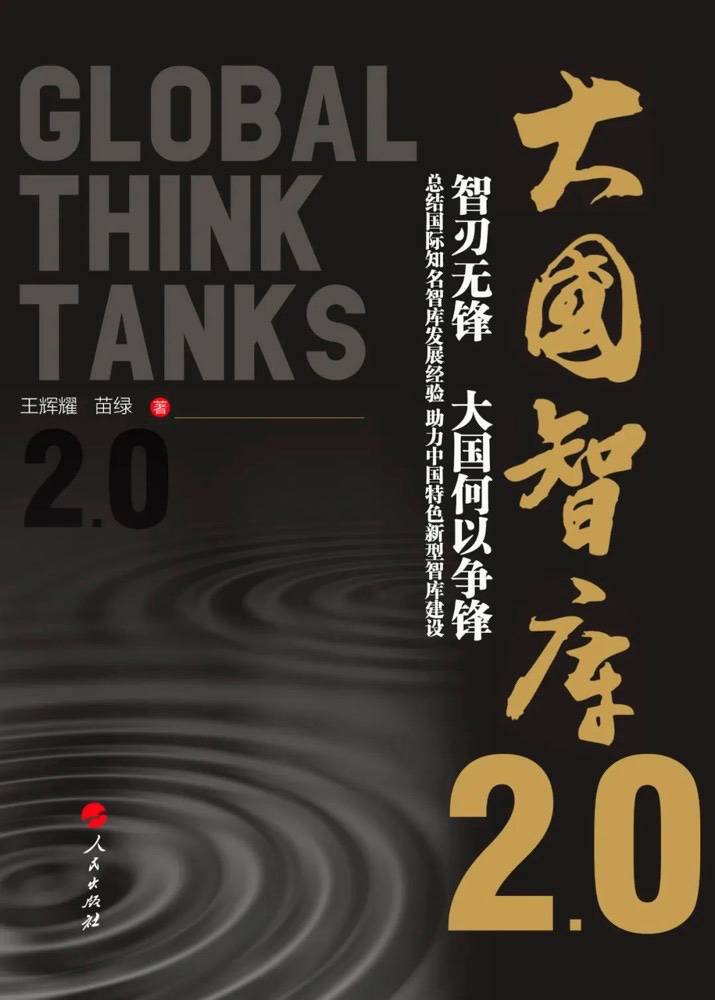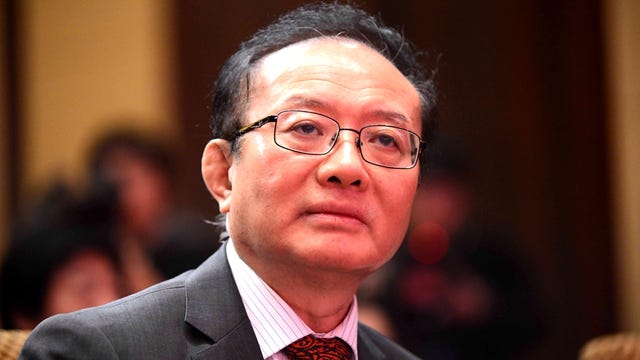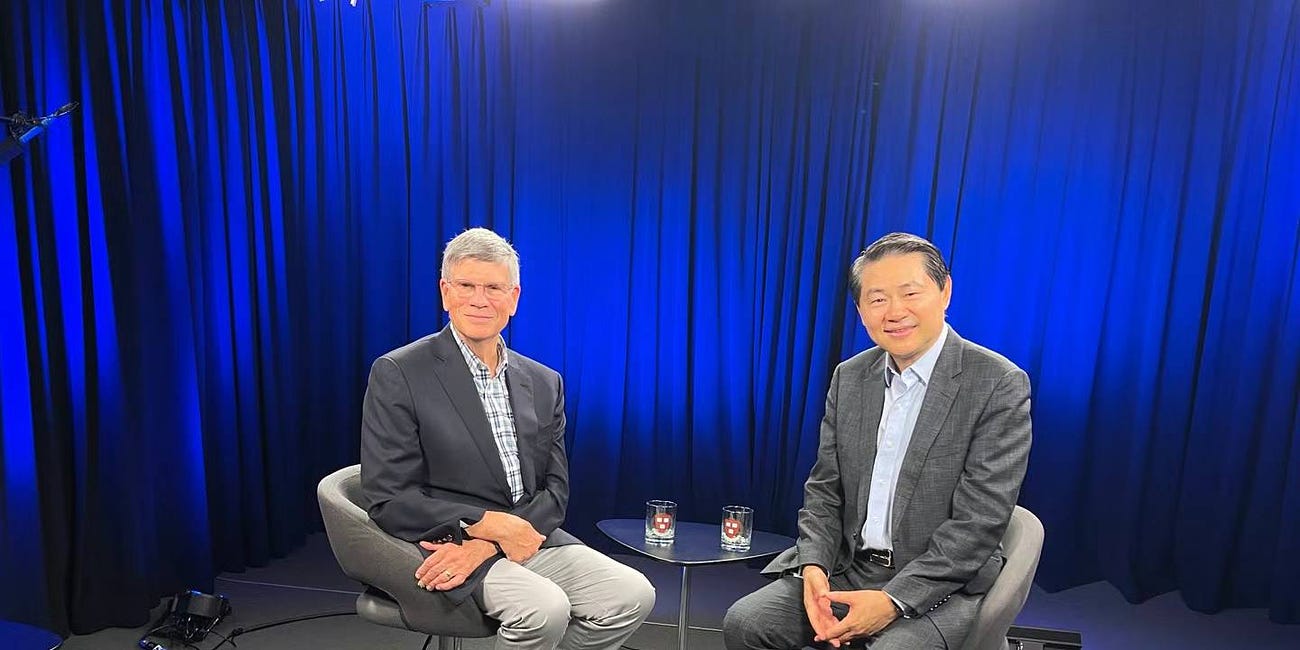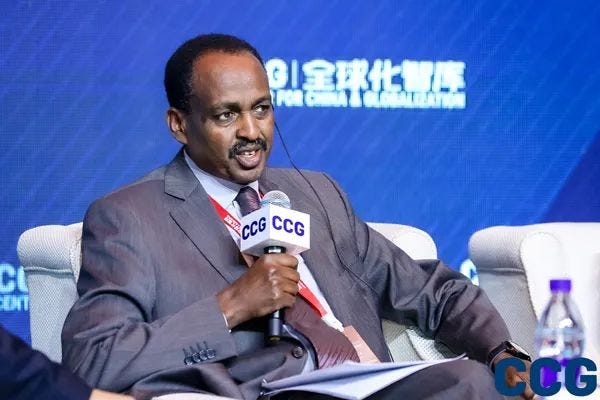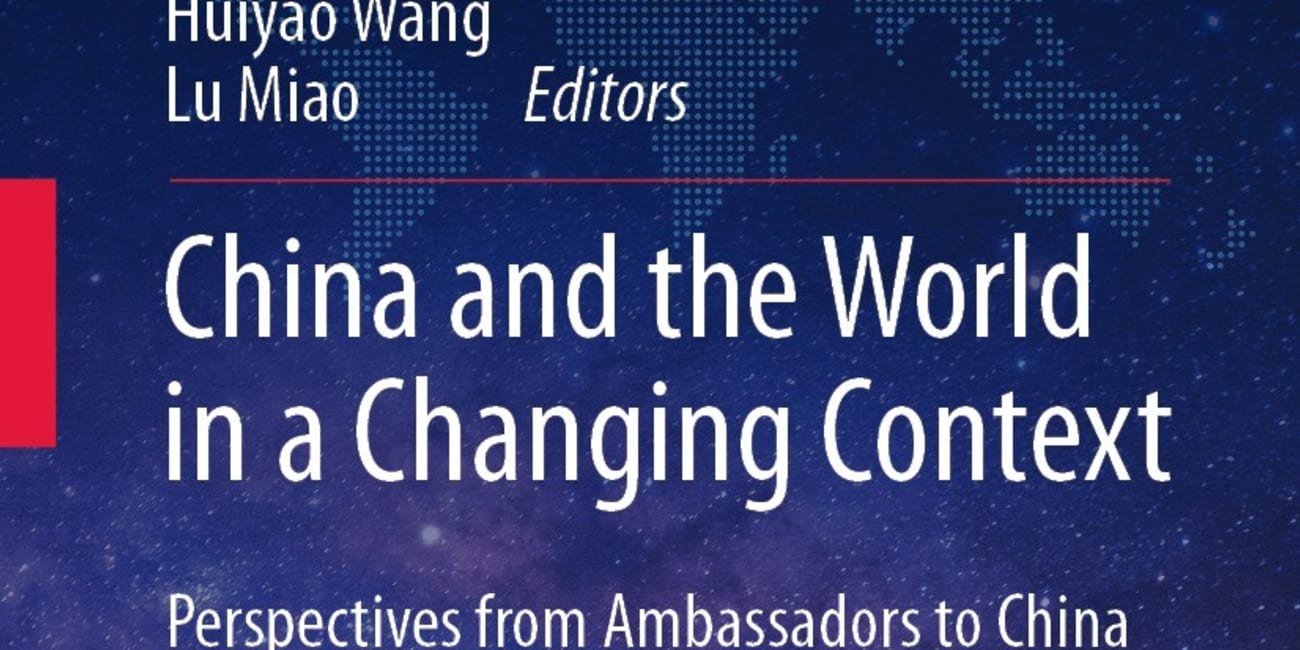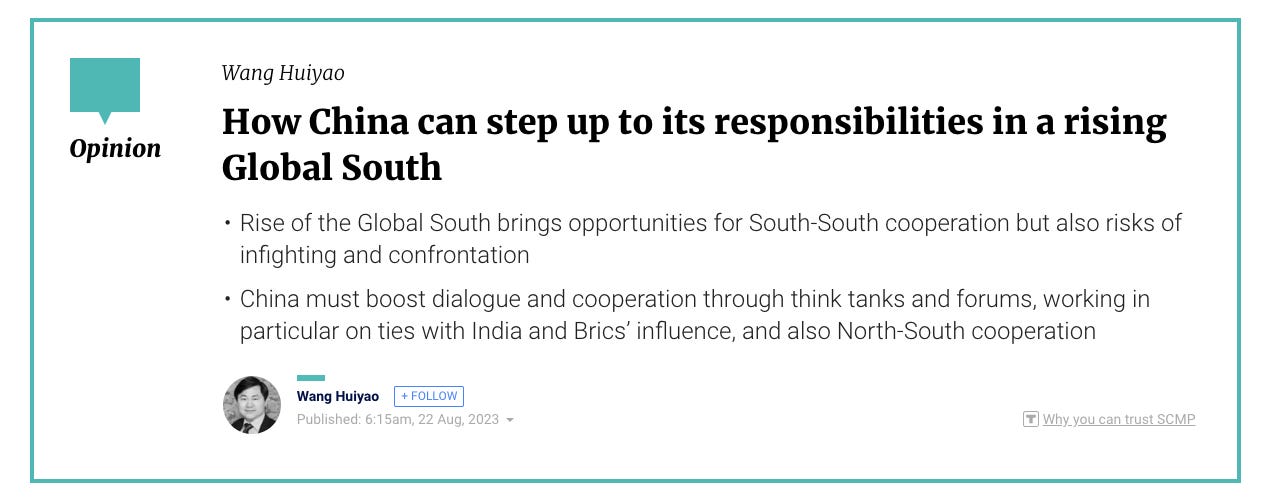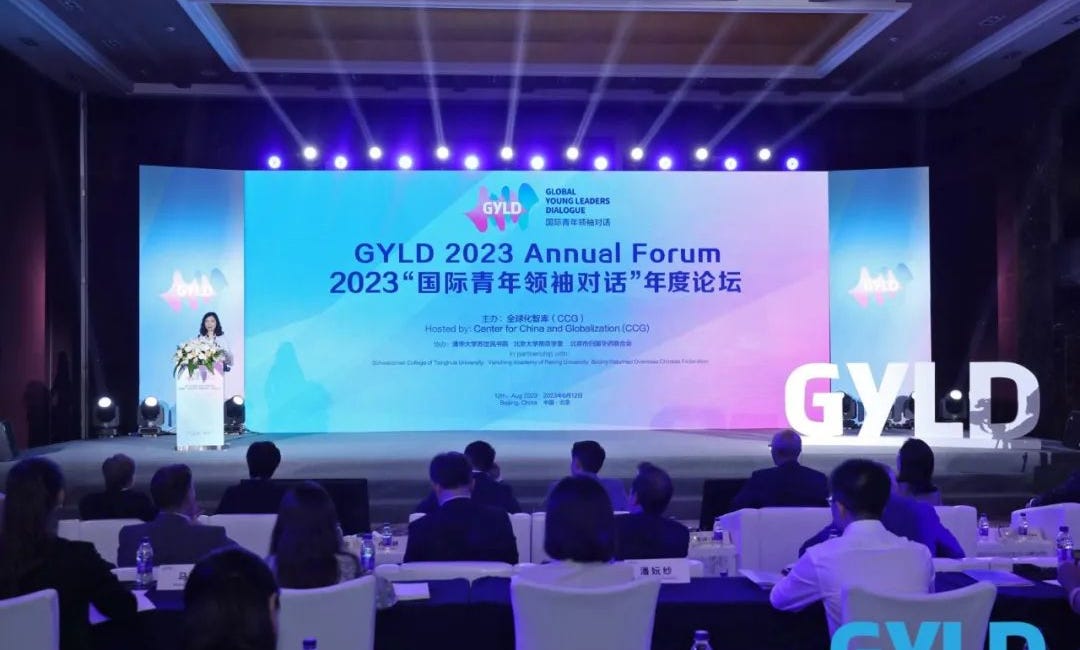Wei Jianguo: independence is the future of Chinese think tanks
Former Vice Minister of the Ministry of Commerce says Chinese think tanks should have more independence and strategic depth in a preface for CCG's new book
Global Think Tanks (2.0), the latest work from CCG, published by the People’s Publishing House, delves into the mission, challenges, and future development of Chinese think tanks against complexities in the international arena. A book release was hosted by CCG on August 18, 2023, followed by a seminar of leading figures from Chinese think tanks and renowned experts and scholars in globalization research.
The following is one of the prefaces to the Global Think Tanks, penned by Wei Jianguo, former Vice Minister of the Ministry of Commerce of China 2001-2008. He is now Vice President of China Center for International Economic Exchanges, a think tank dedicated to national strategic and economic development, under the auspices of China’s top policy deviser: National Development and Reform Commission (NDRC).
Independence is crucial to Chinese think tanks, says Wei, both financially and intellectually. “The new-type think tanks with Chinese characteristics”, as is put by President Xi Jinping, should get ahead of decision-making, propose feasible recommendations, and go beyond mere interpretation of official policy lines. Diverse, insightful, and influential think tanks that allow talent flows between themselves and the government should become the true embodiment of China’s soft power at a new stage of rapid growth and profound reform.
On April 15, 2013, President Xi Jinping issued an important directive on the “construction of think tanks with Chinese characteristics.” He proposed the creation of “new-type think tanks with Chinese characteristics,” emphasizing that think tanks are a crucial part of a nation’s soft power and should possess a degree of foresight. The Third Plenary Session of the 18th Central Committee of the Communist Party of China (CPC) also highlighted the importance of “strengthening the building of new types of think tanks with Chinese characteristics, and establish and improve the consultation system on decision-making.” It’s clear that the development of think tanks in China has become a national strategy, and has entered a new phase of rapid growth. The construction and development of think tanks are becoming essential components in the modernization of China’s system and capacity for governance.
The book that readers now see, Global Think Tanks by Dr. Huiyao Wang and Dr. Miao Lu, is a work on the current status of global think tanks and the development of Chinese think tanks, combining theory with practice, and thinking with on-the-ground research. Huiyao has been a colleague and friend of mine for many years. He worked in the Ministry of Commerce in his early years, bringing government experience to the table. Later, he studied and worked in Europe and America for several years and also served as the Vice President of the Western Returned Scholars Association. After returning to China, he founded businesses and associations, worked as a university professor, and actively participated in the construction of non-governmental think tanks in China, establishing the Center for China & Globalization (CCG). With experience spanning government, business, and academia, he is an ideal talent in the field of think tank research and practice.
Global Think Tanks proposes that, in the context of global think tank development, China needs think tanks that match its stature as a major country committed to peaceful development. The maturity and development of these think tanks will aid China’s peaceful development. I strongly agree with the author’s assertion that the era of Chinese think tanks has arrived. I also firmly believe that the level and research outcomes of a country’s think tanks can represent a kind of soft power for that country, and will ultimately influence its status in the world.
The authors of Global Think Tanks visited over 30 mainstream think tanks in North America and Europe, and conducted on-site investigations of world-class think tanks. Based on this, the book analyzes the current development of domestic and foreign think tanks against the globalization backdrop. It summarizes the development experiences of foreign think tanks and points out problems in the development of Chinese ones. Moreover, the book provides relevant policy and practical suggestions based on case studies as well as the authors’ ongoing operation of a Chinese think tank. The book also entails the background of think tank development in the era of globalization, an overview of global think tank development, and the status of Chinese think tanks. It provides an in-depth analysis of the growth trajectory, environment, role, and functions of Chinese think tanks, especially summarizing and sharing the developmental experience of Chinese non-governmental think tanks. It highlights the dilemmas and challenges faced by Chinese think tanks and outlines the future path and prospects for their growth. This book can offer rich experiential material for China’s research on think tanks and provide concrete suggestions for the rapid development of Chinese think tanks.
Currently, China has over 1,000 think tanks of various sizes, but only a few can be considered world-class in terms of level, quality, and influence. Mr. John Thornton, (former) chairman of the Brookings Institution in the U.S., said that an excellent think tank should possess three characteristics: independence – not only financial independence but also intellectual independence – which is particularly crucial for Chinese think tanks; quality, as the quality of a think tank’s publications determines its overall standard; finally, influence is essential. Greater independence is a development trend for Chinese think tanks and also a key step for China in achieving diversified decision-making at the national level. Therefore, these three aspects are indeed what Chinese think tanks currently lack. If domestic think tanks can achieve relatively independent operations, then the “revolving door” mechanism will also smoothly kick off. This “revolving door” mechanism, in other words, frequent personnel movement between think tanks and the government, is a significant feature of U.S. think tanks. However, at present, Chinese think tanks do not have a well-functioning “revolving door” mechanism. If young scholars from think tanks can become policymakers in the government and gain experience through this involvement, they will be more proficient at policy-making when they return to research institutions.
I believe there are three main shortcomings in China’s think tanks:
First, lack of strategic depth. Many of the suggestions put forward are reactive and passive, and the timing, manner, and effectiveness of some of these proposals are unsatisfactory. The mission of think tanks is to guide decisions with new ideas, and they should definitely be ahead of the decision-making process. However, the current development trend among Chinese think tanks is to focus on interpreting policies. While policy interpretation is necessary, it is not the primary role of think tanks.
Second, lack of operational strength. More feasible recommendations and implementation plans are needed.
Third, lack of diversity in means of proposal. Think tanks worldwide, especially those in Europe and the United States, often present their viewpoints through think tank breakfast meetings, roundtable discussions, and seminars, even on international occasions.
How can China best utilize the current opportunity to strengthen our think tank development?
First, I am in favor of diversification. There should be multiple perspectives in decision-making, and the government should not be always hinged on to lead the way. Some policy adjustments could be initiated by think tanks and finalized by the government. Diversifying decision-making would enable both the government and the market to play a more effective role in resource allocation.
Second, the development of think tanks can be divided into the following three aspects.
1) think tanks should “make moves,” delivering impressive strategies, and if necessary, even extraordinary ones.
2) think tanks should “clarify mysteries.” This is a crucial task for Chinese think tanks. When speaking to the world on China’s viewpoints, civilization, and development, think tanks should clarify misunderstandings.
3) think tanks should “provide guidance,” offering clear development paths and plans for the government and policies: How should the nation proceed next? Should the nation invest in this project or not? Should it undertake this initiative or not? If yes, what should be the first and second steps?
Think tanks are often described as the “brains” of a country, using their ideas to earn respect for decisions, instill confidence in the public, and secure the nation’s future. Think tanks, like wise and brave elders who have experienced the vicissitudes of life, use their broad minds and thoughts to guide decision-makers, allowing them to be “Carefree with youthful vigor, pointing to our rivers and hills” [a quote from Mao Zedong’s poem "Changsha"]
China has entered the era of think tanks. It is in a crucial period of comprehensively deepening reforms and on a path to a new economic growth phase; China faces unprecedented development opportunities and severe challenges. The CPC Central Committee and the State Council are pushing for sound, democratic, law-based decision-making, and the accuracy of decisions. Amid major changes in the world economic governance pattern and comprehensive deepening reforms in China, the mission of Chinese think tanks becomes even more honorable, the tasks more daunting, and the responsibilities more significant.
President Xi Jinping’s instructions on the development of Chinese think tanks and the establishment of sound decision-making consultation mechanisms proposed at the Third Plenary Session of the 18th Central Committee of the CPC point to a new path for the development of Chinese think tanks. In light of this, the exploration of developmental pathways for China’s new type of think tanks requires daring ideas, fearless innovation, and a greater infusion of wisdom and courage. Through the construction of high-quality new think tanks with Chinese characteristics, precise policy recommendations and consulting insights can be provided for governmental decision-making. This endeavor contributes to the nation’s soft power and advances the modernization of China’s system and capacity for governance. The aim is to carve out a path of development for major-country think tanks that aligns with the ascent of a great nation.
Finally, congratulations on the publication of the book Global Think Tanks by Dr. Wang Huiyao and Dr. Miao Lv at People’s Publishing House!




